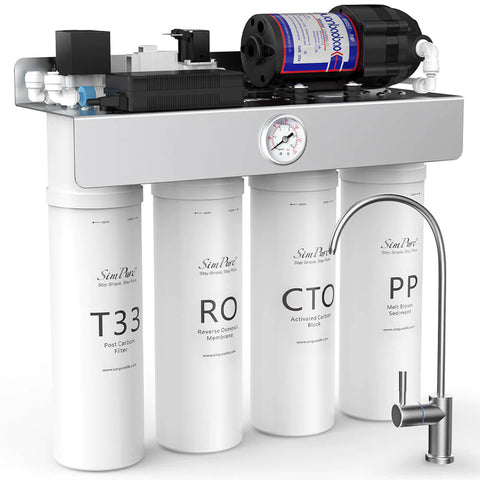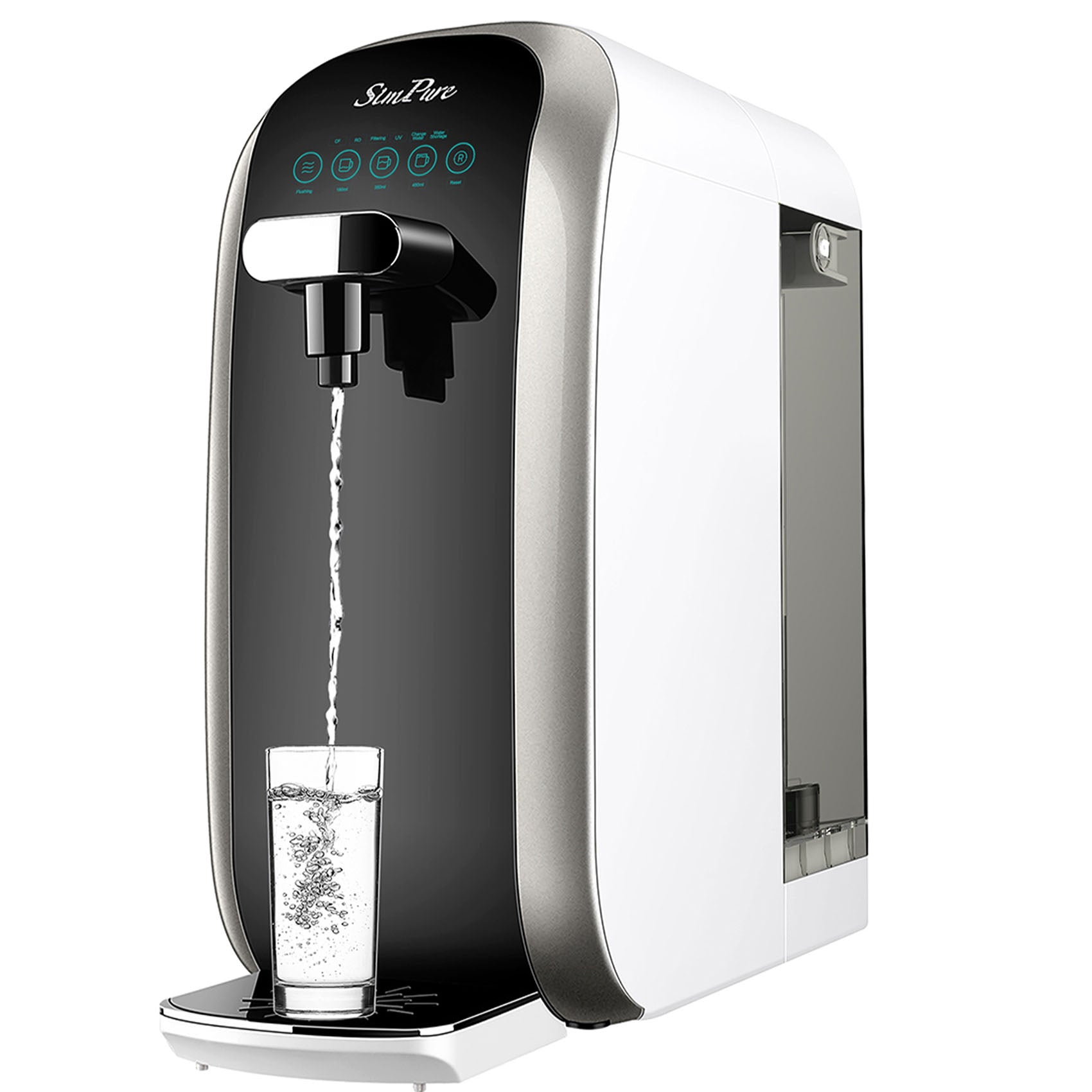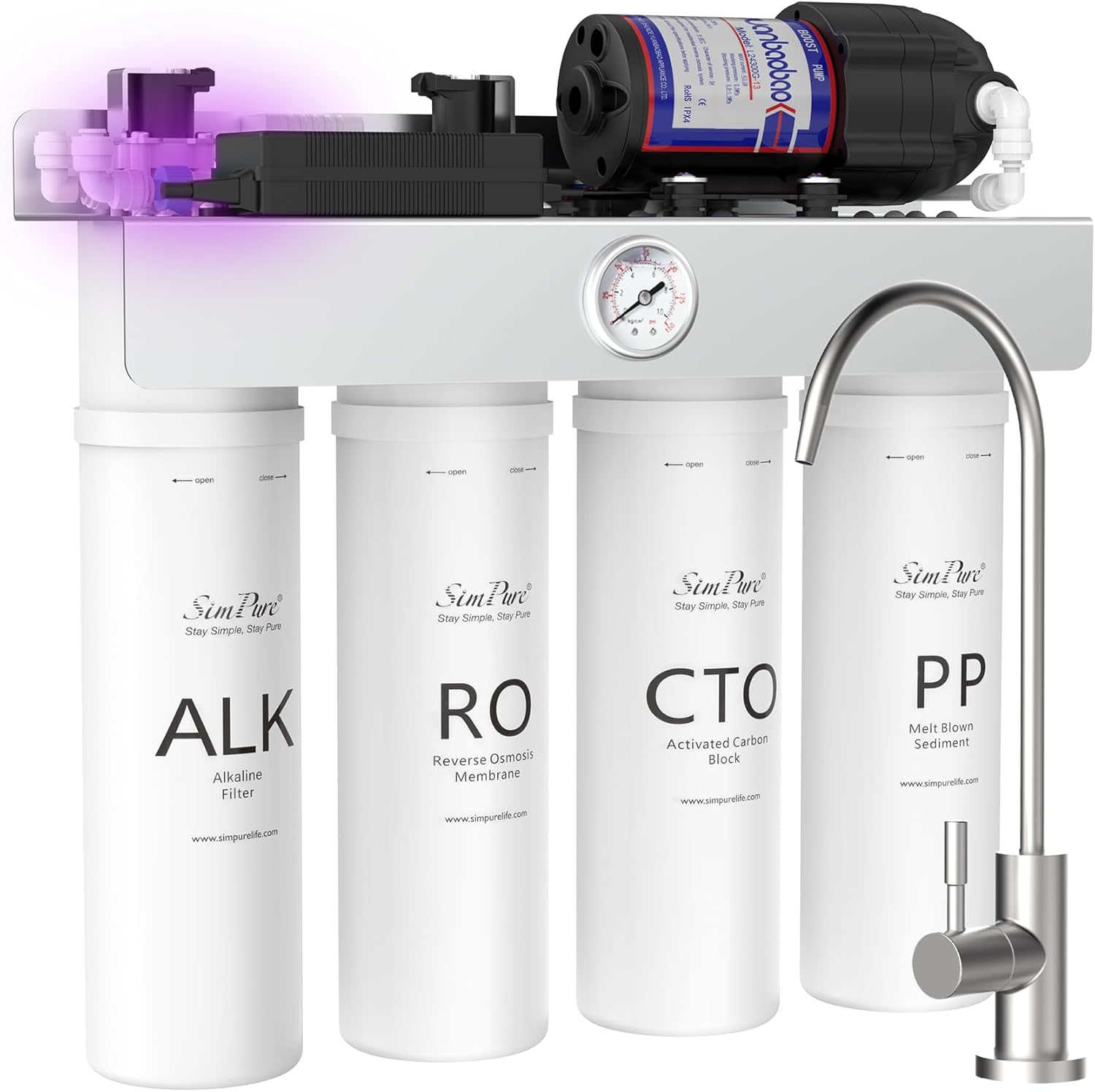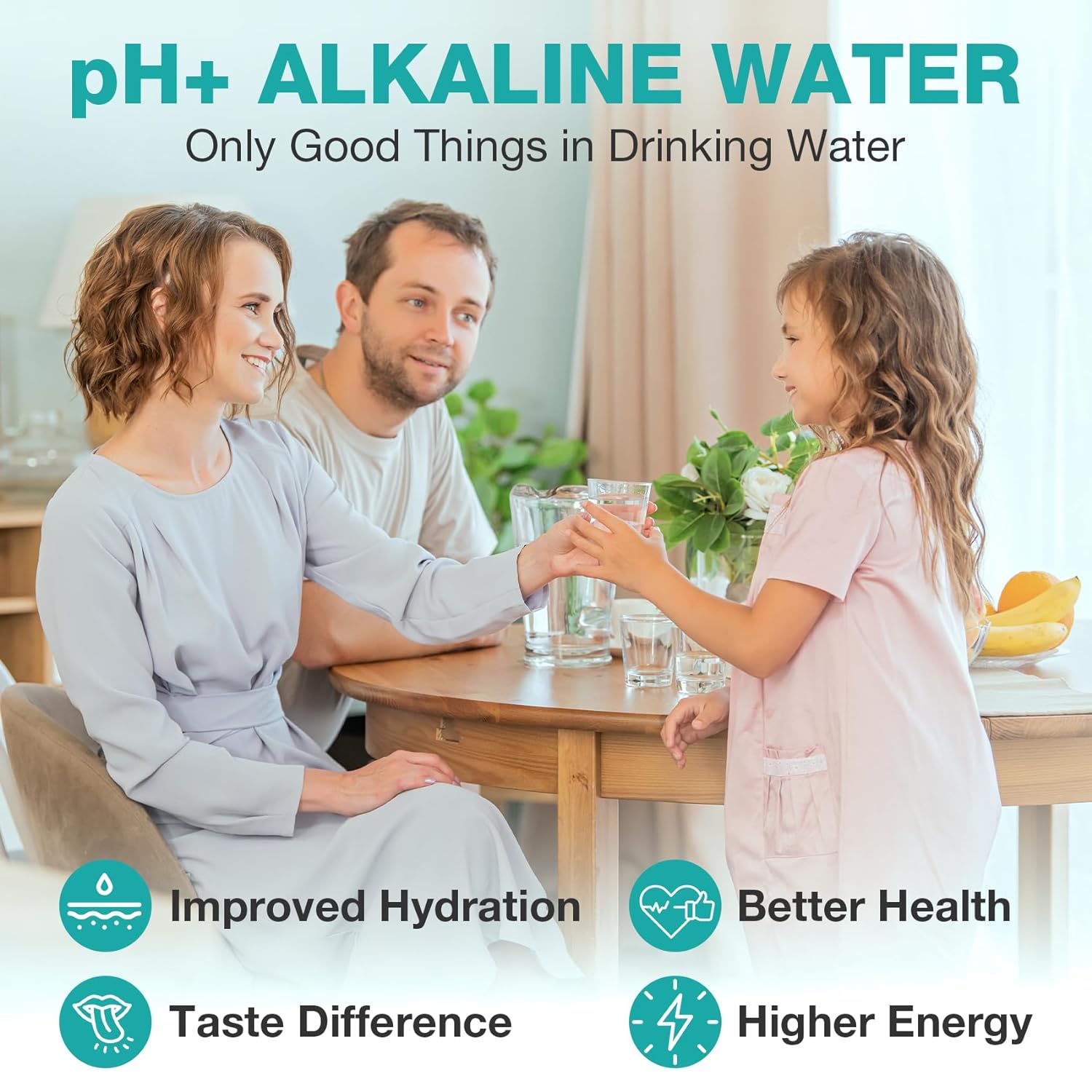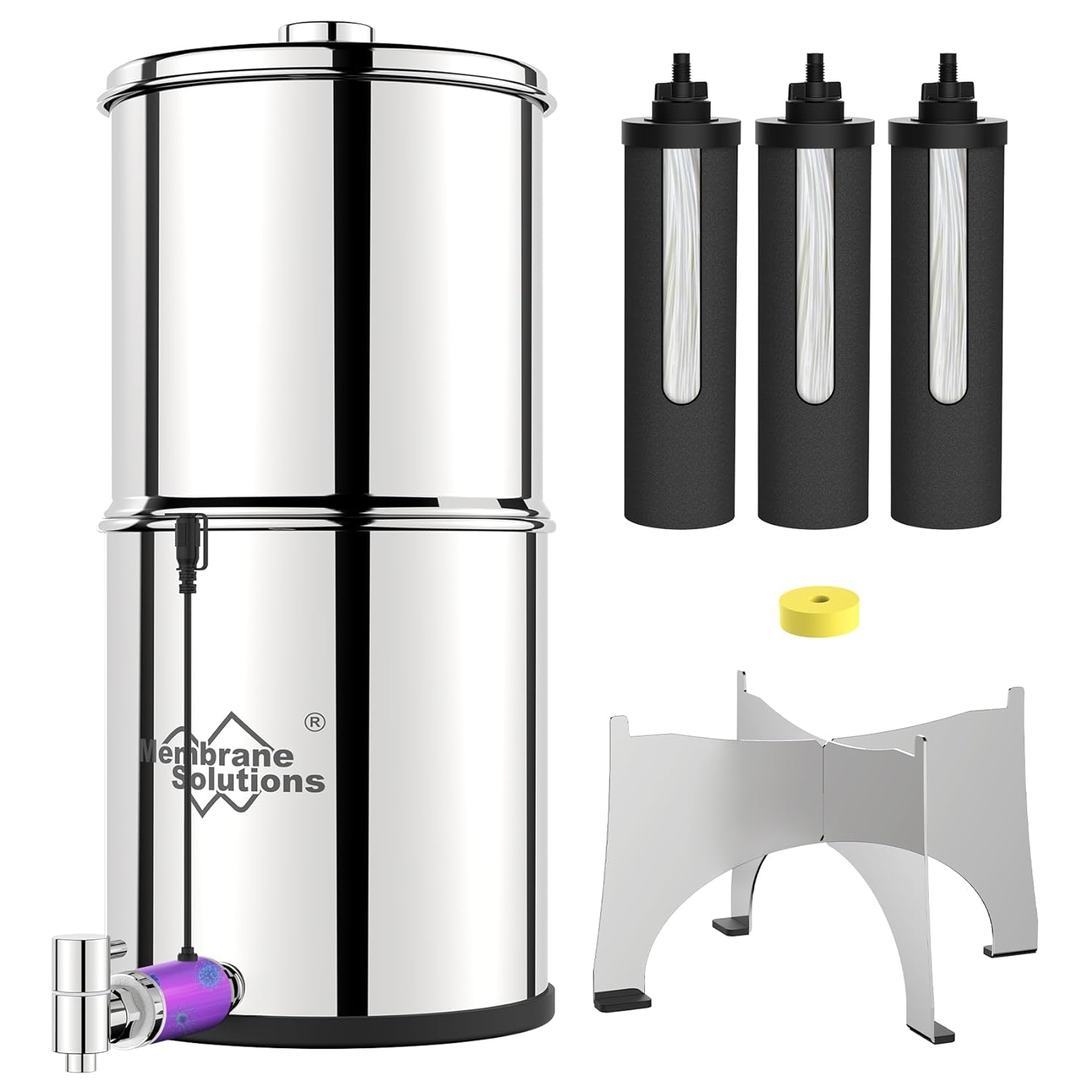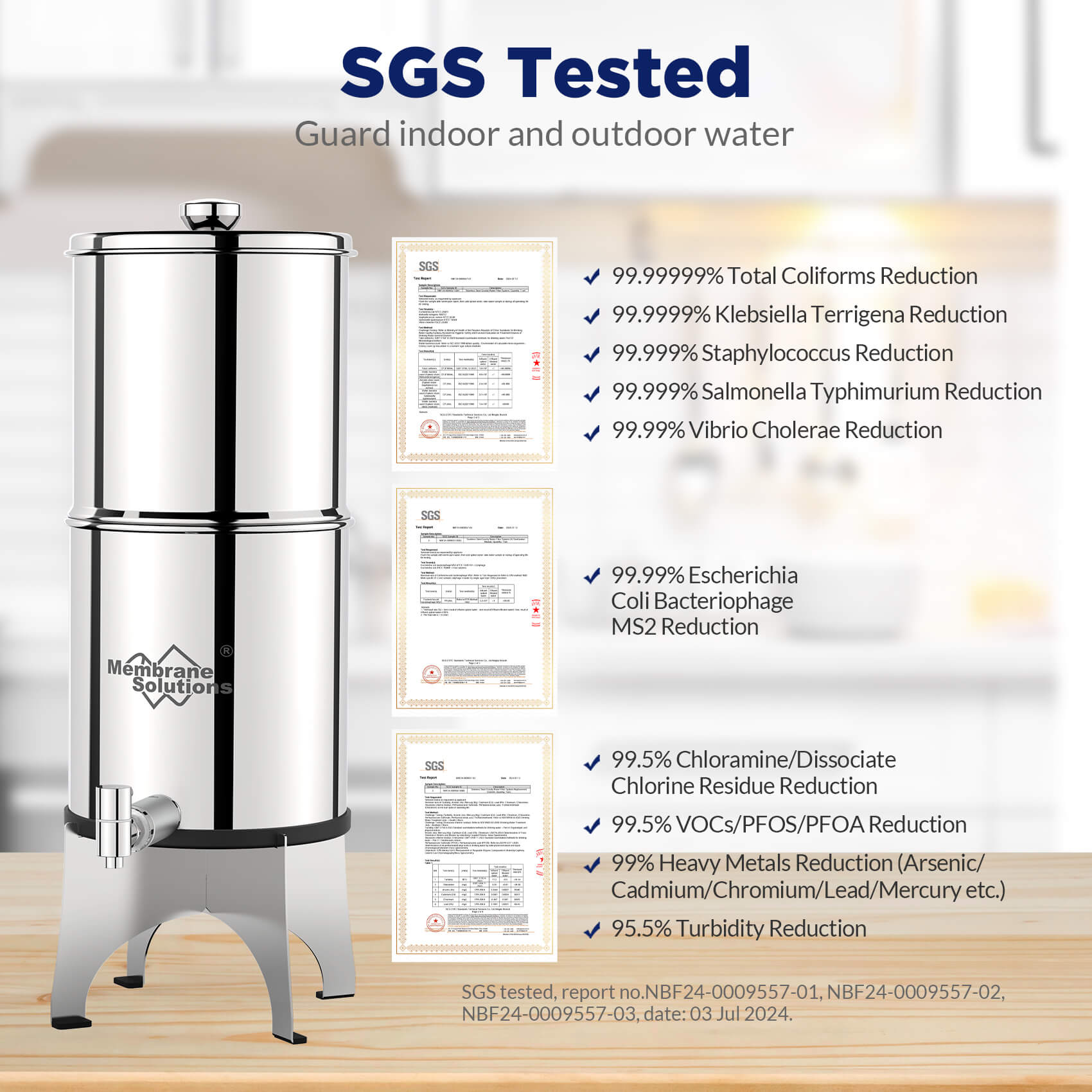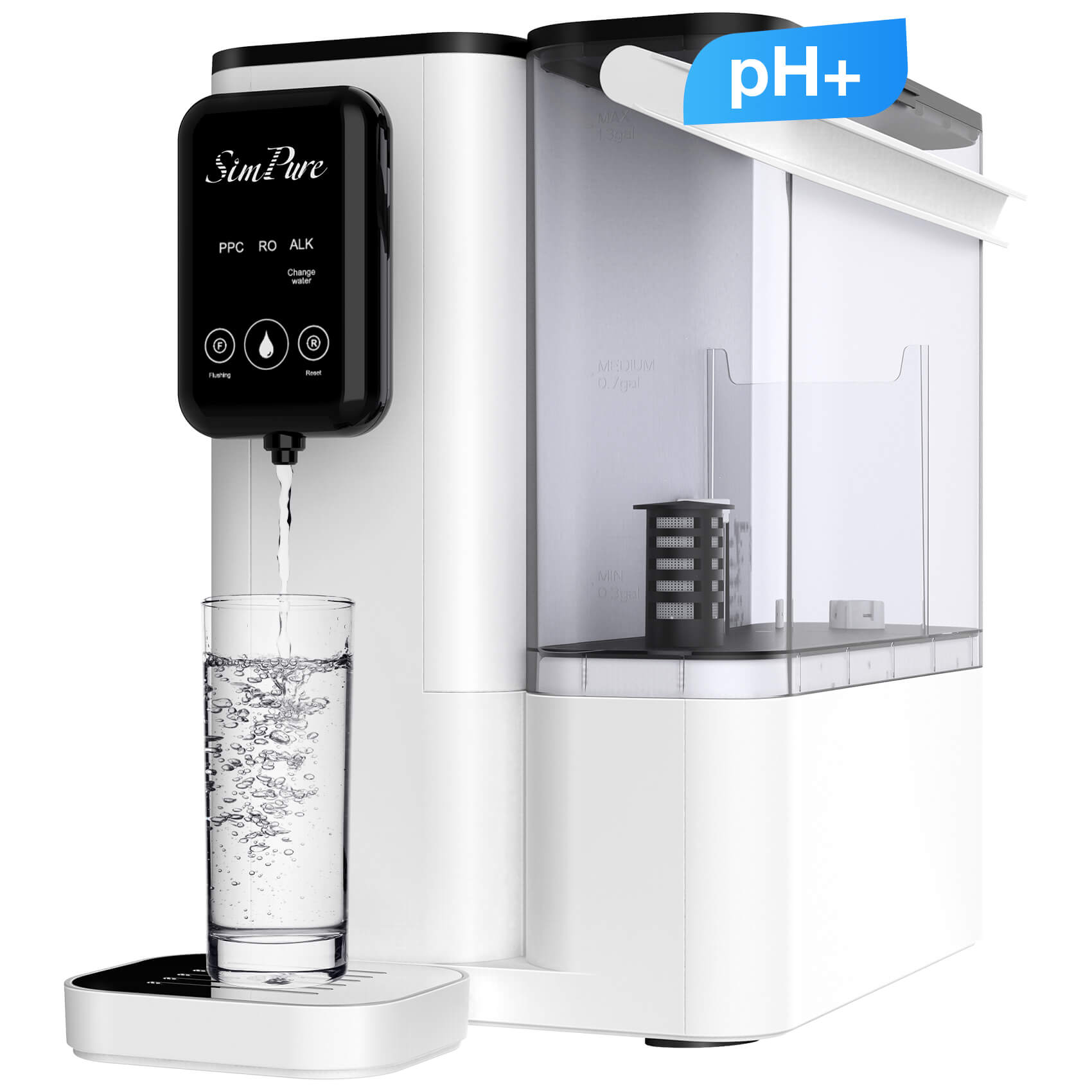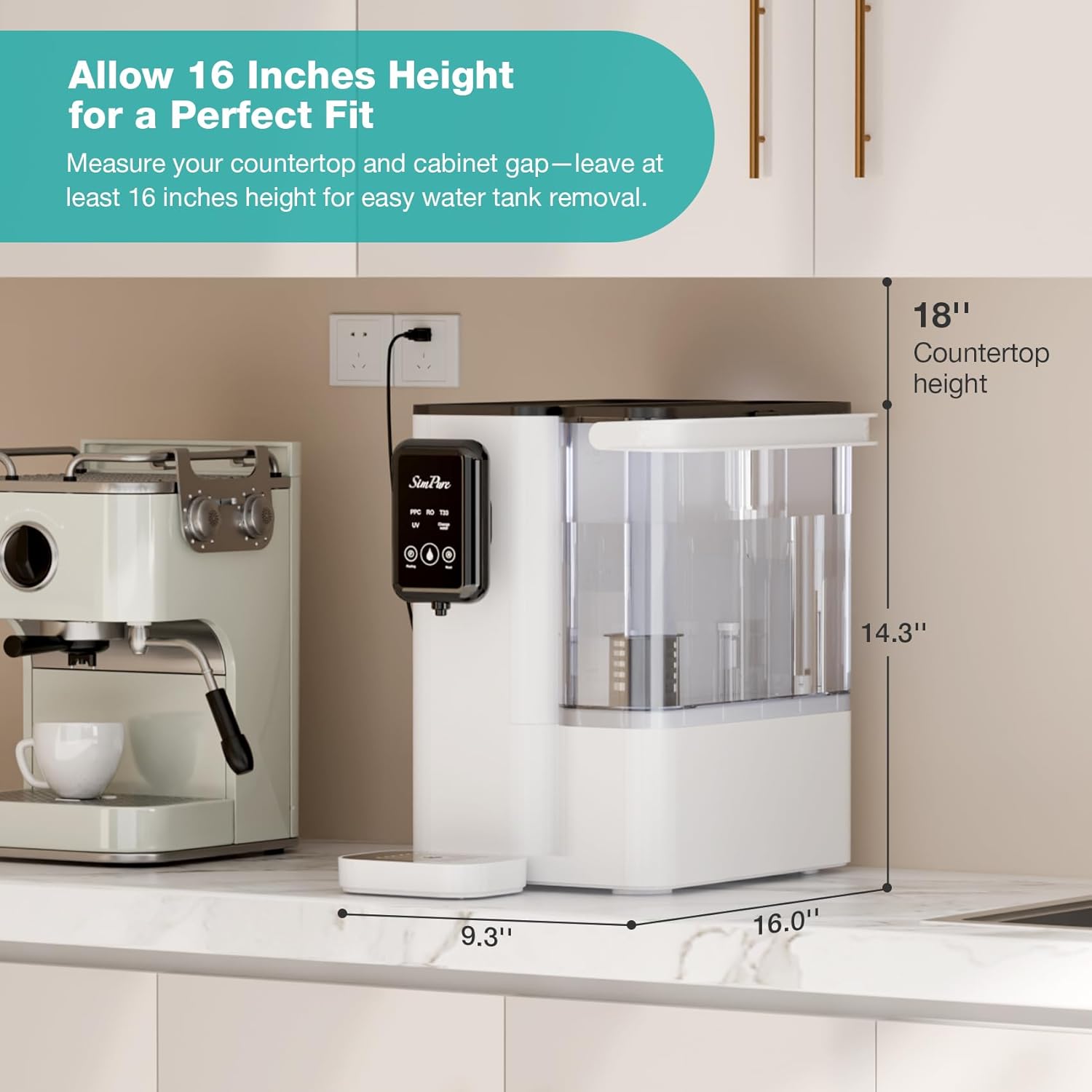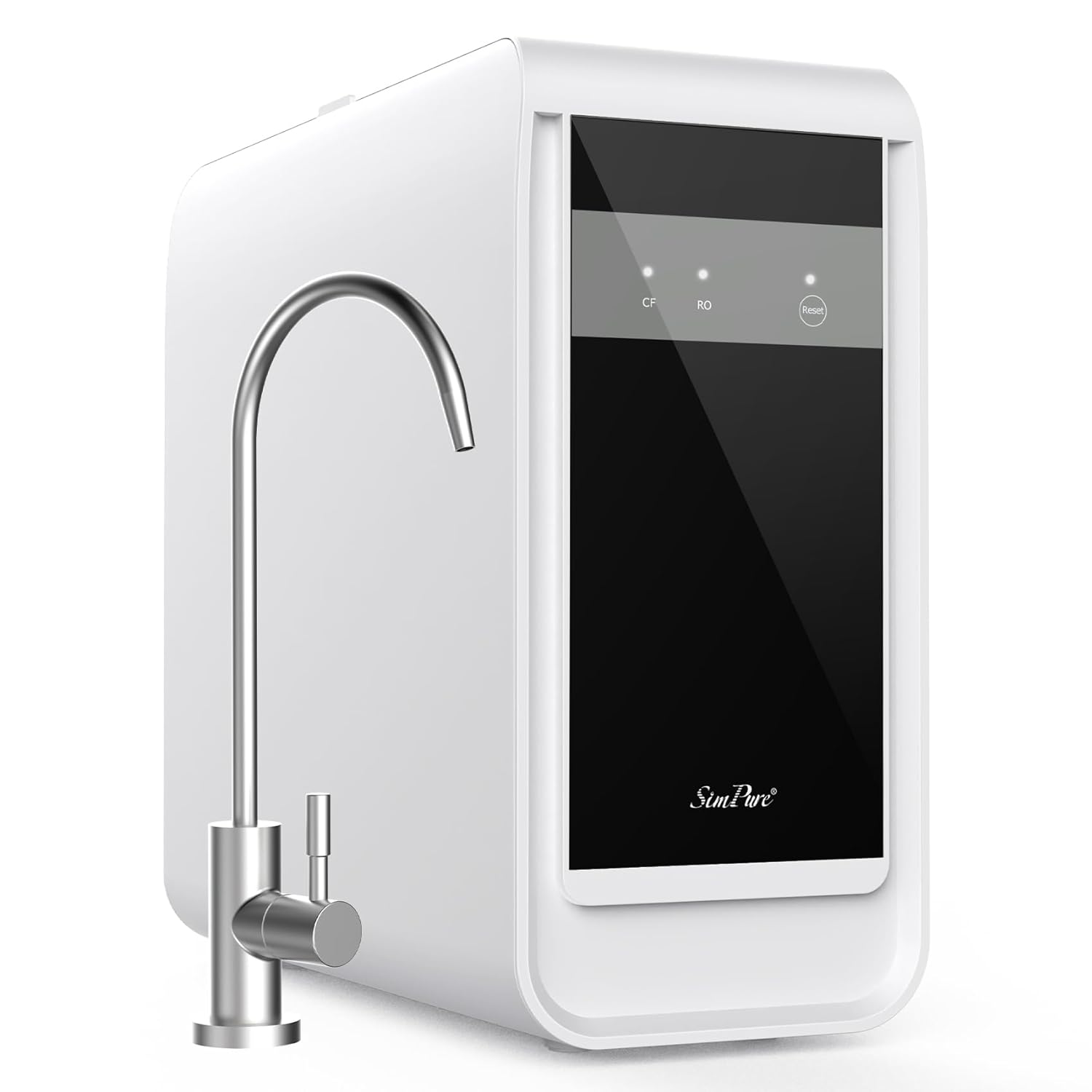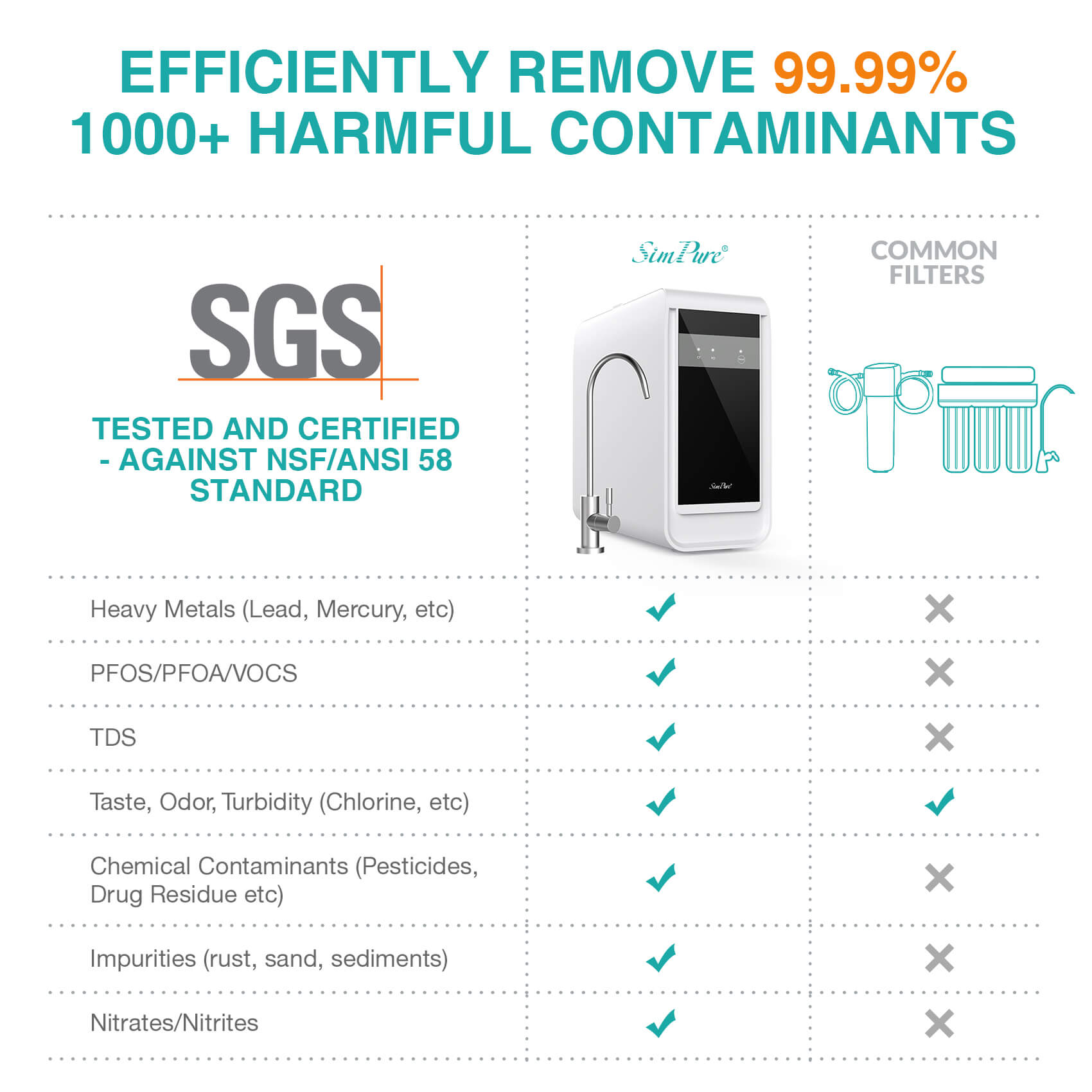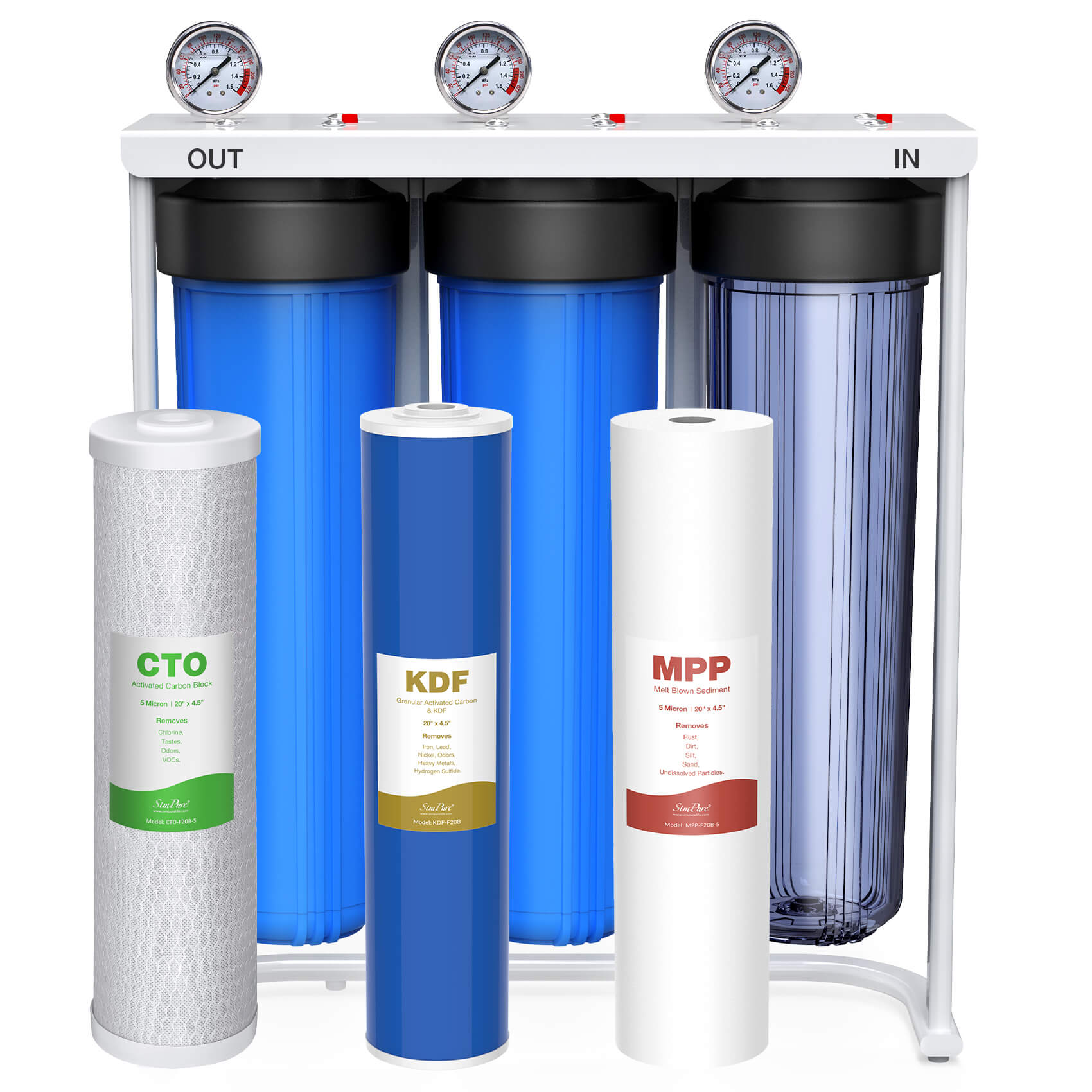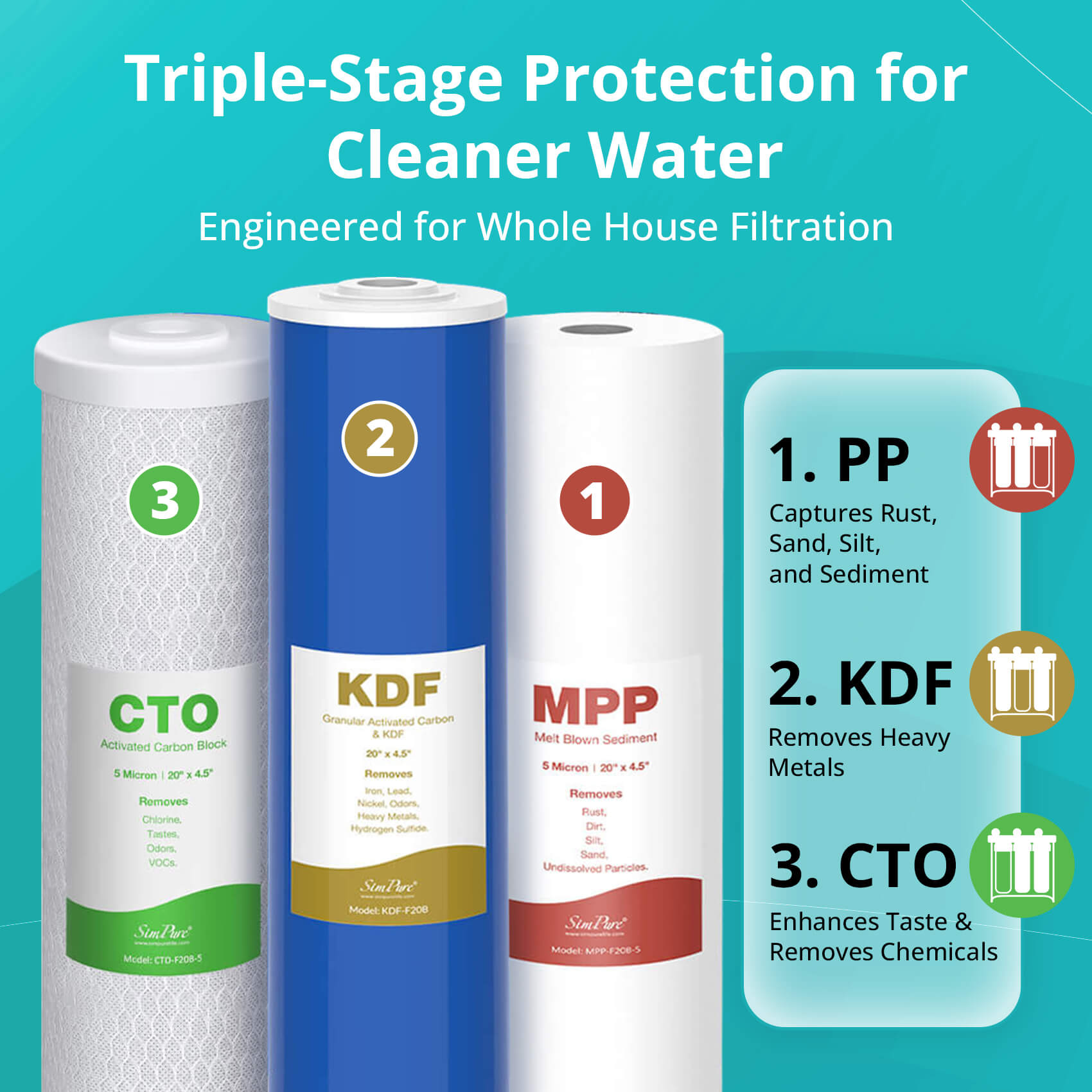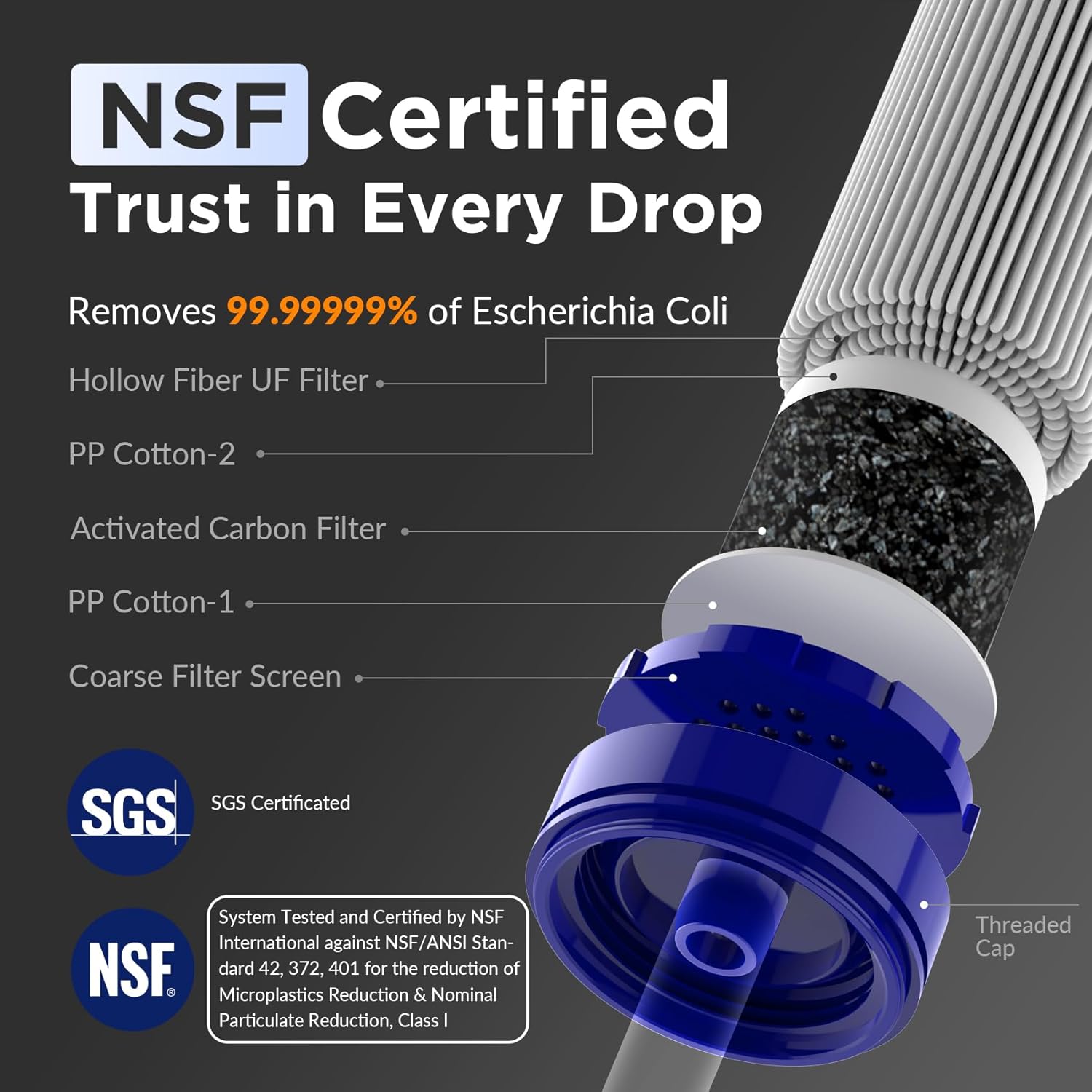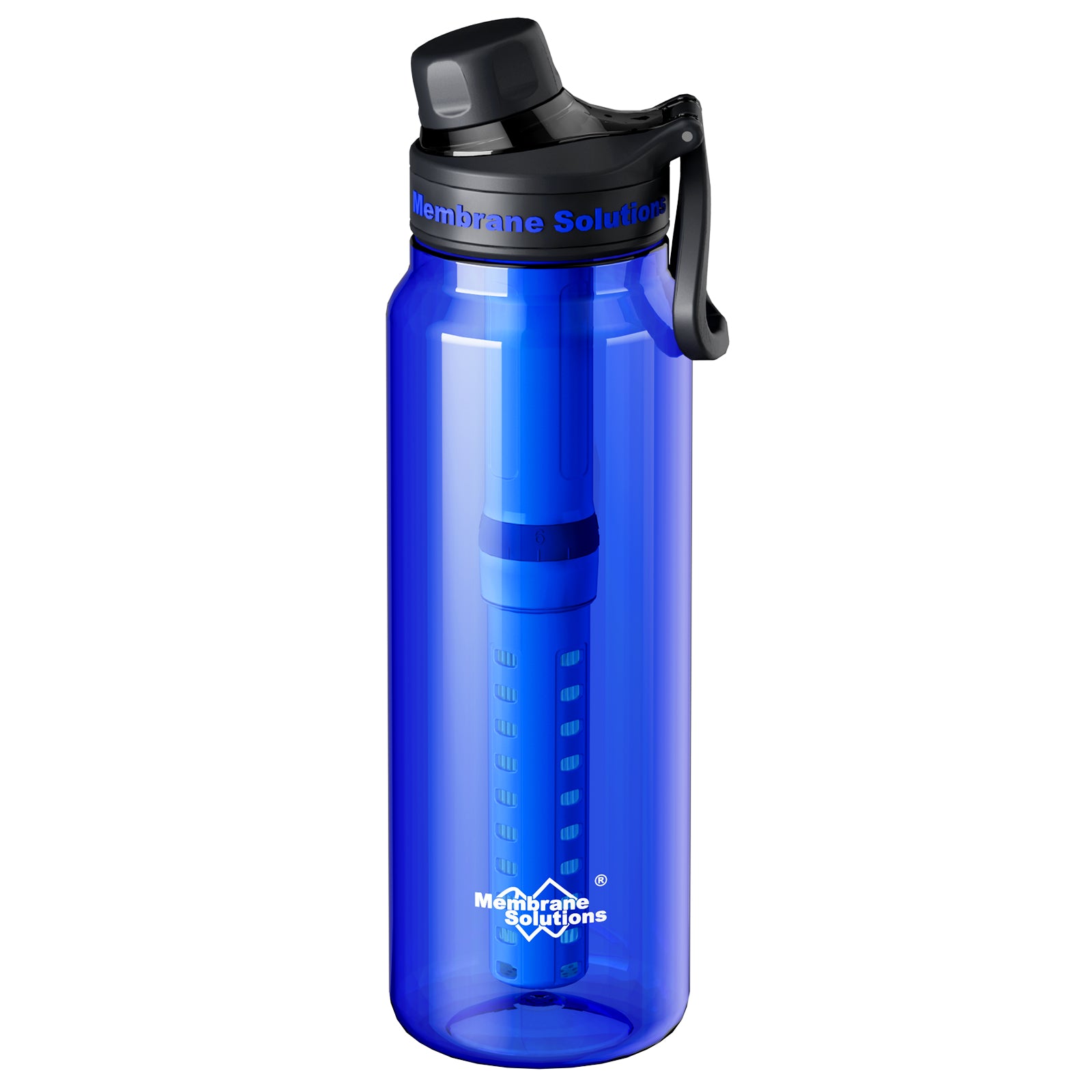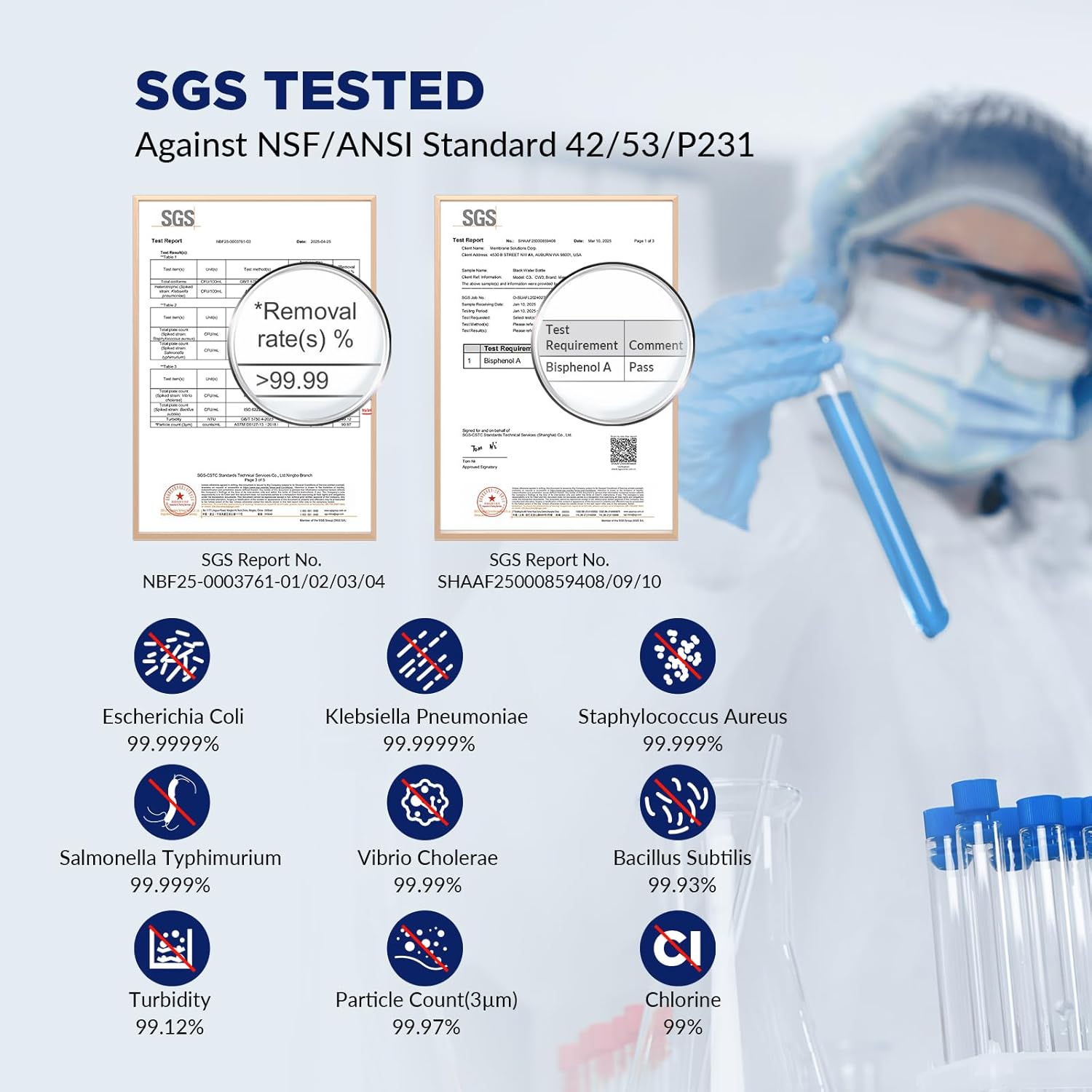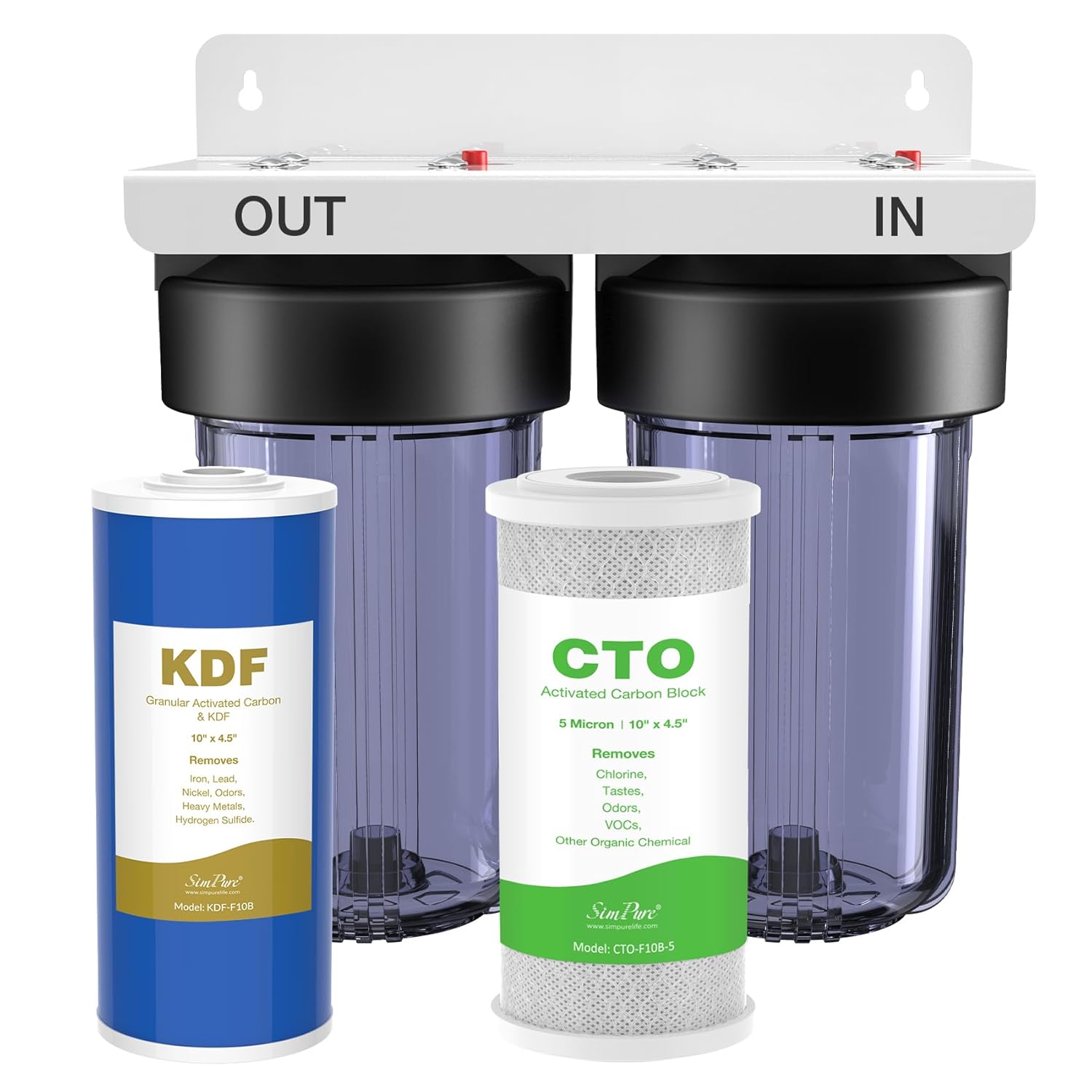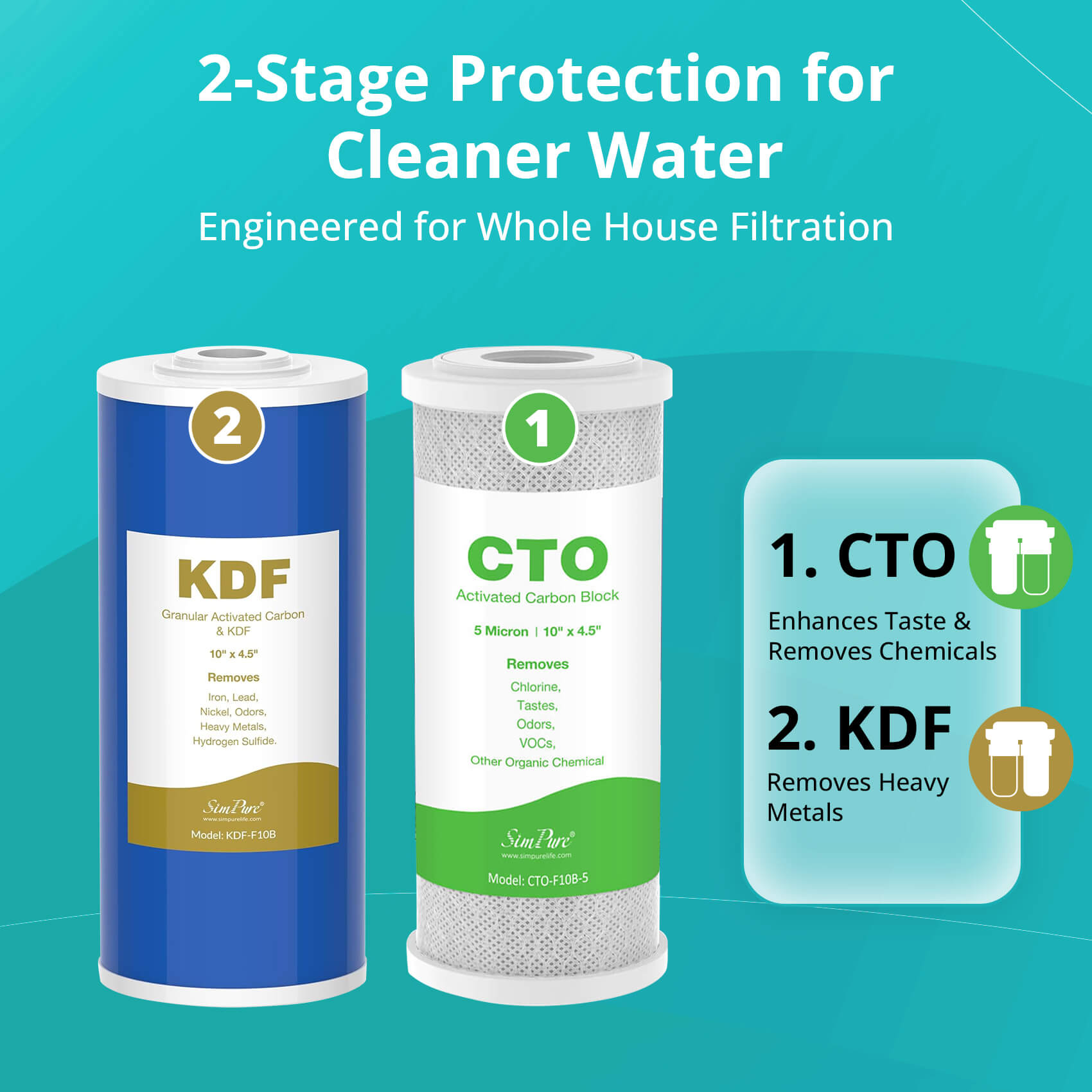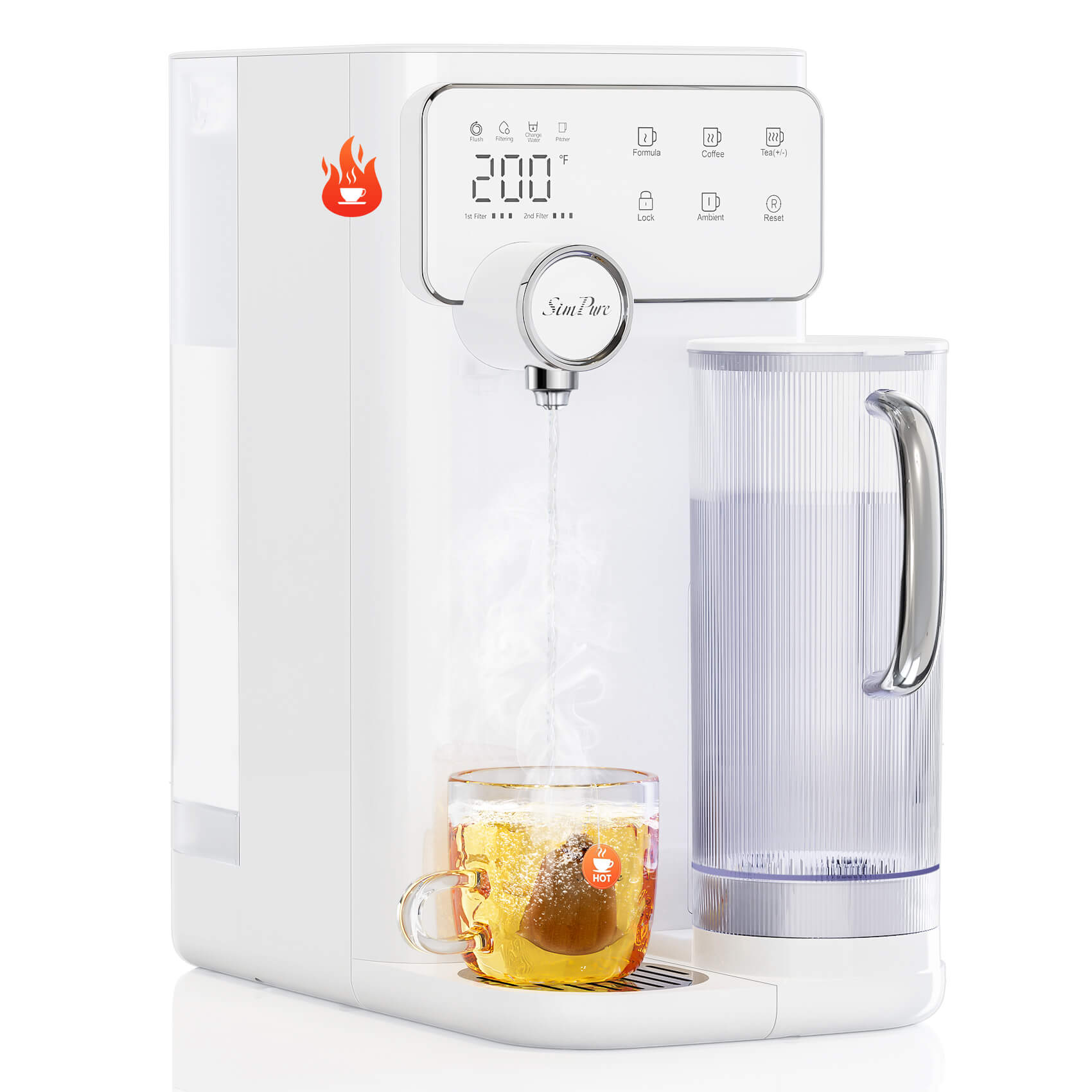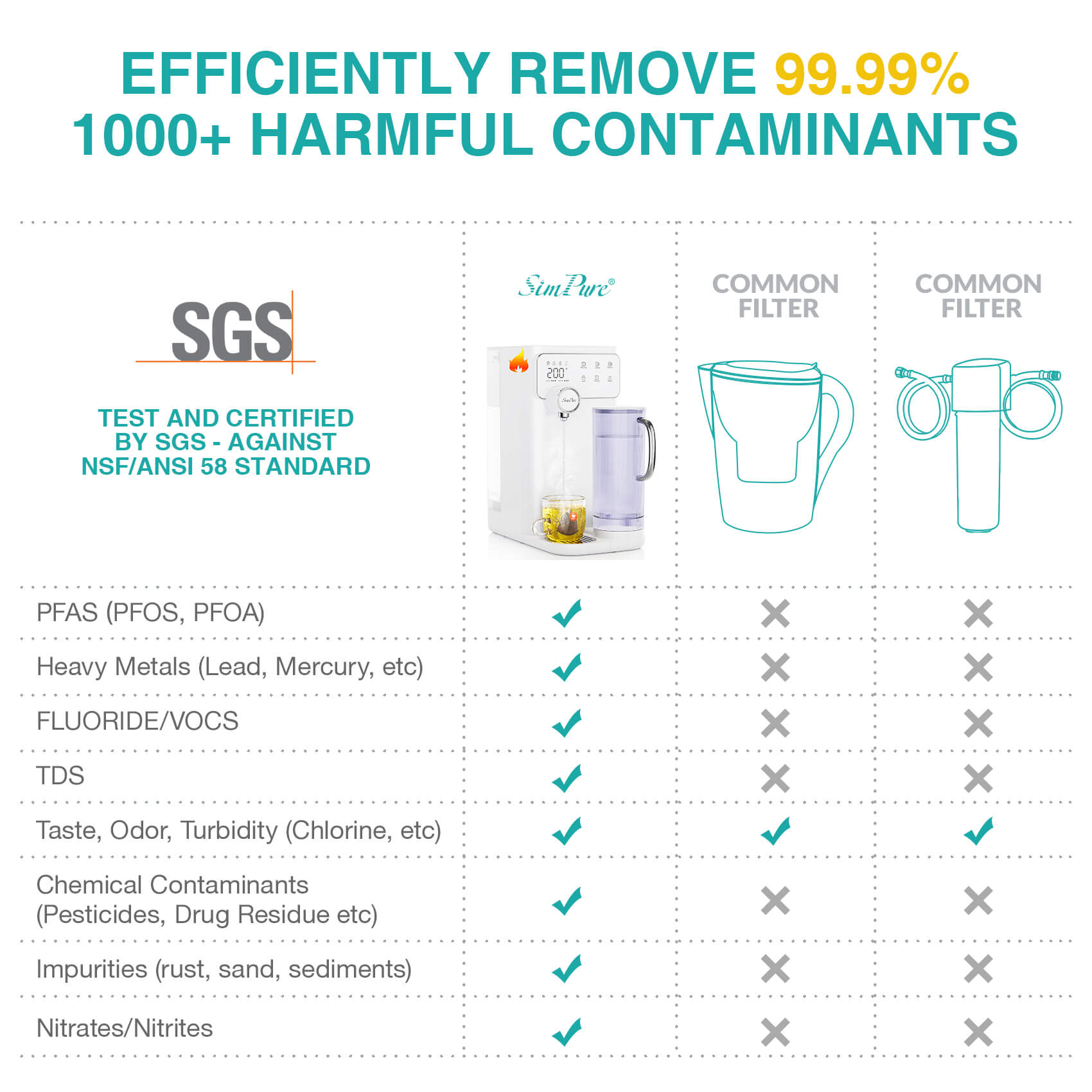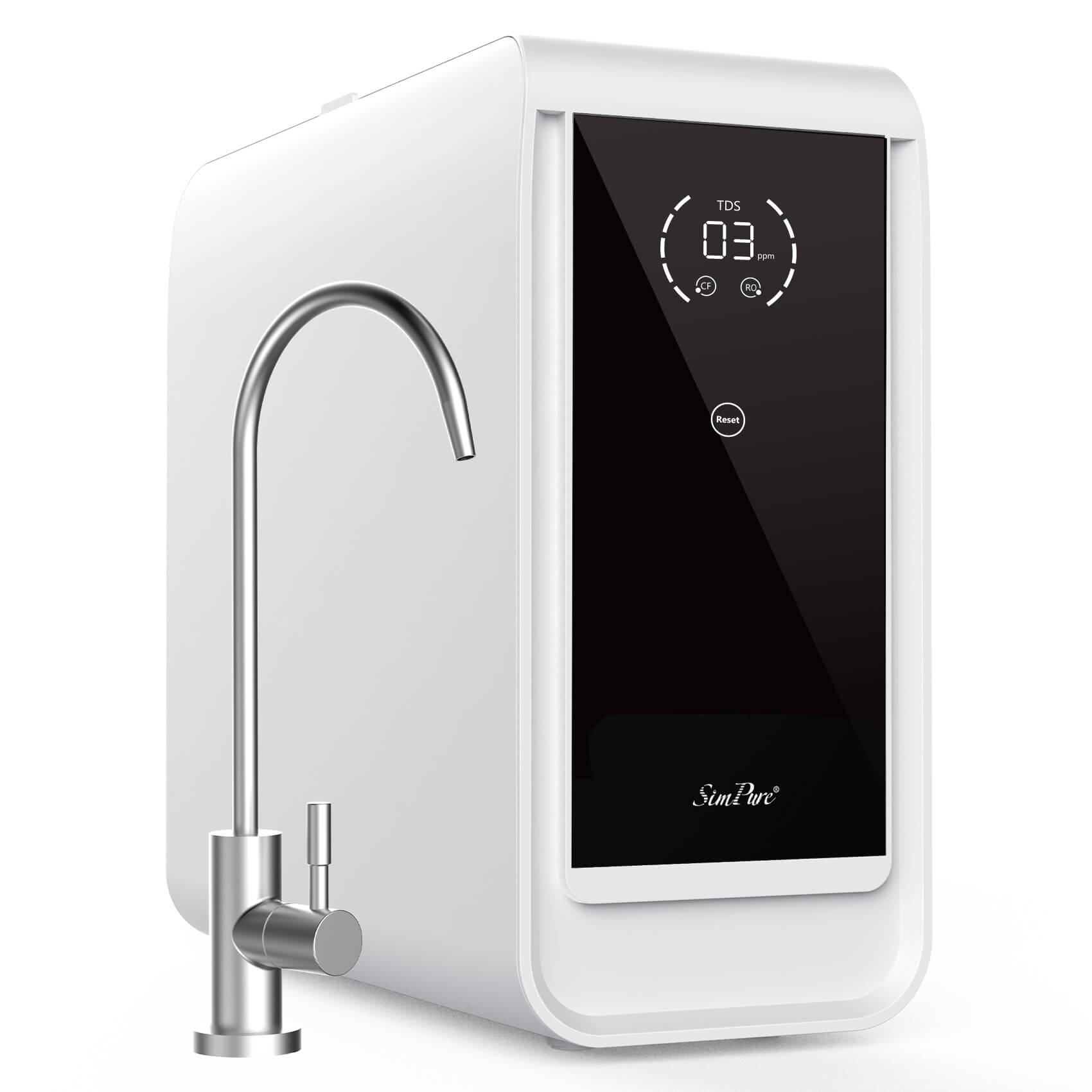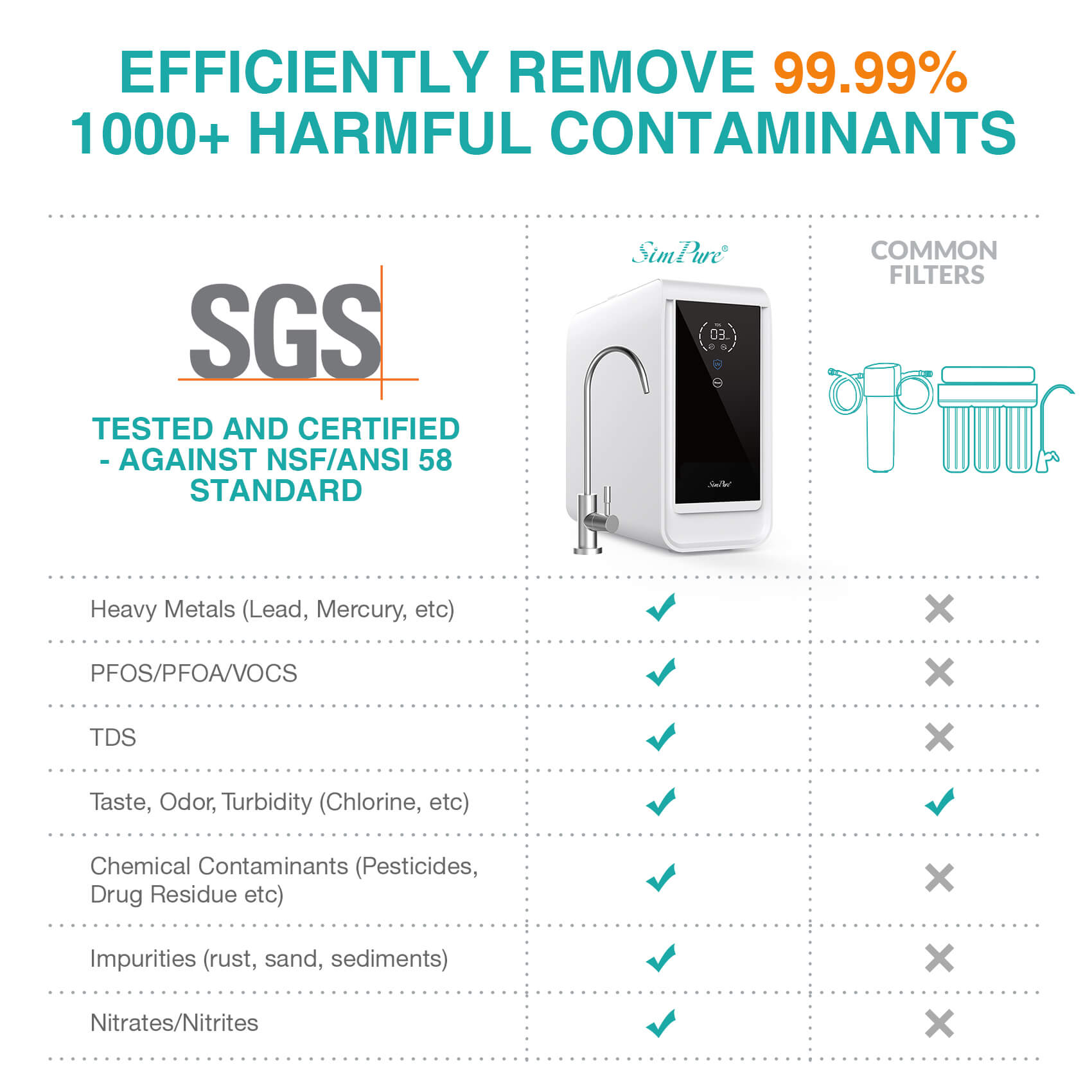If you notice limescale buildup on your faucets, or your clothes feeling rough and stiff, chances are that your home may have hard water. Hard water contains high amounts of minerals, such as calcium or magnesium which pose several challenges for households, such as reducing the efficiency of appliances or making water unsafe for use.

Over time, these hard mineral deposits clog pipes and damage appliances, making it essential to convert hard water into soft water. Hence, it is important to take the necessary steps to convert hard water into soft water to improve water quality and make it safe.
We have curated this comprehensive guide on how to make hard water soft by detailing the most effective methods available in the market. So, read this blog till the end.
1. Ion Exchange Water Softeners
The first method on how to make hard water soft is via ion exchange water softeners. During the softening process, the ions in hard minerals such as calcium or magnesium are exchanged with ions of soft minerals such as sodium as these do not produce limescale or affect home appliances.

The ion exchange water softeners consist of a resin tank and a brine tank. The resin tank contains negatively charged cation resin beads, coated with sodium. As hard water passes through the resin tank, the positively charged calcium and magnesium ions are attracted to the resin, causing the sodium ions to be released into the solution. Since sodium ions are harmless, they turn water soft and render it safe for use.
Over time, the resin becomes saturated with calcium and magnesium ions. The system then undergoes regeneration, where a brine solution flushes the beads, removing the hard minerals and replenishing the sodium ions.
Pros: Ion exchange water softeners are pretty effective at removing water hardness by eliminating various hard minerals such as calcium, magnesium, nitrates, and heavy metals. It also removes bad odor and improves water taste.
Cons: Ion exchange water softeners require regular maintenance and resin regeneration. They are also expensive to install and may not be suitable for treating hard water with high levels of organic matter.
Meanwhile, you may read more about the differences between hard water and soft water here.
2. Reverse Osmosis Systems [Most Recommended]
The second most effective method of converting hard water into soft water is reverse osmosis. It is the most recommended method as it is quite effective at eliminating contaminants and minerals as small as 0.1nm. RO also filters and purifies water, gradually improving its taste and making it safe for consumption.
Reverse osmosis comprises three components, pre-filtration, RO membrane, and post-filtration. During pre-filtration, hard water is forced through the pre-filters that remove large particles and chlorine to protect the RO membrane. Then the water is forced through the semipermeable membrane which has small pores.
These pores prevent hard minerals or contaminants from passing through the filter, allowing soft and clean water to pass through. During post-filtration, the filtered water may pass through additional filters to get rid of any remaining impurities.
Reverse osmosis is the most recommended one as it effectively eliminates different types of contaminants, bringing the TDS level to zero. It also purifies water and enhances its taste, making it safe for consumption.
Read more about whether reverse osmosis softens hard water here.
Best Solution: SimPure T1-400 UV Best Water Filter System for Hard Water
If you are looking for the best reverse osmosis water filter for your home, consider the SimPure T1-400 UV water filter as it features a semipermeable membrane with a precision of just 0.1nm. Since calcium ions have a diameter of 0.4nm and calcium ions of 0.532nm, it is the best at effectively eliminating these minerals. Thanks to its T33 filter, UV filter, and reverse osmosis system, it brings TDS levels to zero, turning water soft and fit for use.
3. Chelating Agents
Chelation is a process involving the binding of hard minerals in water such as calcium or magnesium with a chelating agent. A chelating agent is a specialized molecule that binds with hard minerals in water. Citric acid also acts as a chelating agent in salt-free water softeners.
When water passes through the softeners, the citric acid molecules bind to the minerals, forming a stable complex that prevents the minerals from causing scale buildup, ultimately turning water soft.
Pros: Chelation prevents limescale buildup, extending the lifespan of plumbing lines, fixtures, and appliances. Chelation systems are cost-effective and low-maintenance, making them ideal for budget-conscious individuals.
Cons: Chelation does not effectively remove minerals from water, rather it prevents their negative effects. It may involve the use of chemical chelating agents which may not be environmentally friendly.
4. Magnetic or Electronic Water Conditioners

Magnetic or electronic water conditioners remove water hardness by using electricity to create a magnetic field around water, claiming to turn hard water soft. The electronic water conditioner comprises a box with two cables coming out which are coiled around the water pipe. As water passes through the pipe, these coiled cables generate a magnetic field that aims to alter the properties of hard water, turning it soft.
Pros: Magnetic water conditioners are easy to install and require minimal maintenance.
Cons: The efficacy of these electronic water conditioners is debatable with very little evidence supporting their claims of turning water soft.
5. Lime Softening
Lime softening is the process of turning hard water soft by adding lime solution into hard water and raising the pH level to 10. This helps remove calcium carbonate, or limestone, reducing limescale buildup. Lime softening is mostly used in municipal settings or large-scale industrial applications
Pros: It is suitable for treating hard water in large volumes in industrial settings.
Cons: Lime softening may not be suitable for residential use due to the complexity of the process of carefully balancing chemicals and managing water pH levels.
6. Boiling

If you wonder how to make hard water soft at home then consider boiling the water. Boiling is the most common and easiest method of treating hard water. Fill a pot with water and place it on a stove burner. Allow the water to boil for a few minutes and then turn off the heat. Let the water cool and scoop the sediment off on the top of the water. Transfer the boiled water to a clean pot. The sediment is calcium as it is white.
Pros: Boiling is simple and easy to do. It doesn’t involve the use of special chemicals or equipment to treat water. Boiling water before drinking also eliminates microplastics since they bond with calcium carbonate.
Cons: Boiling doesn’t get rid of all impurities present in hard water, just the temporary hardness caused by calcium or magnesium.
7. Distillation
Distillation is the process of boiling water to create steam and then condensing it back into liquid. This process removes major contaminants and hard minerals from water.

Pros: Distillation purifies water and greatly removes contaminants including hard minerals from water, turning it soft.
Cons: Distillation is energy-intensive and requires a lot of heat to maintain the boiling phase. It is also a slow process, delaying water treatment.
8. Water Softeners with Salt-Free Technology
Water softeners with salt-free technology employ alternative methods to treat hard water. Instead of removing hard minerals, they convert them into nanocrystals using specialized media. The crystals are suspended and don’t adhere to surfaces, so they cannot cause scale buildup.
Pros: Salt-free water softeners don’t use salt, making it ideal for people on a low-sodium diet. They are also easy to maintain and preserve healthy minerals.
Cons: Since these softeners do not remove minerals from water, this may make water unsafe for certain appliances. These salt-free water softeners may be a bit more expensive than traditional water softeners.
9. Water Softening Shower Heads
If you wonder how can you make hard water soft while bathing then consider water-softening shower heads. These water-softening shower heads eliminate the effects of hard water directly at the point of use, providing an immediate solution for water hardness. The SimPure 20-Stage Best Shower water filter features multiple filters such as the KDF 55, activated carbon, calcium sulfite, and alkaline ceramic balls that effectively purify water and render it safe for use.
These filters remove hard minerals, heavy metals, rust, sand, and sediments, protecting your hair and skin. Thanks to the resin filter, the TDS level is reduced to zero, making water fit for showering.

Pros: These shower heads can be easily installed on fixtures and provide immediate access to softened water, improving your hair and benefiting your skin. These shower heads feature multiple filters which reduce major contaminants, improving water quality.
Cons: Since shower heads can only be installed on shower fixtures, they have a limited scope of removing hard water across the house.
Conclusion
We hope you have gotten the idea of how to make hard water soft. Every method has its pros and cons so you must choose the method that best aligns with your needs and preferences. You must invest in these methods as soft water is beneficial for health and also prevents appliance damage.
Consider your household requirements such as water hardness levels and specific requirements to choose the best water-softening method.
Related Blogs on Hard Water:
2. Does Hard Water Cause Acne?
3. Does Hard Water Cause Dandruff?
4. Does Hard Water Cause Kidney Stones?
5. Hard Water Stains on Clothes After Washing
6. Why Is My Water Leaving Green Stains?



